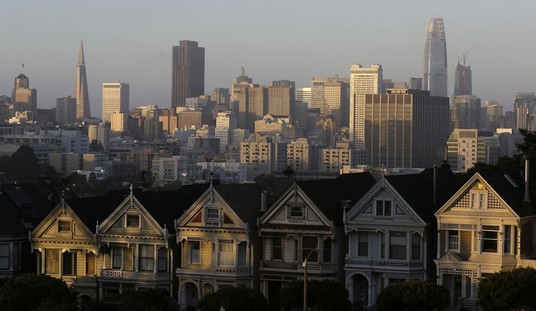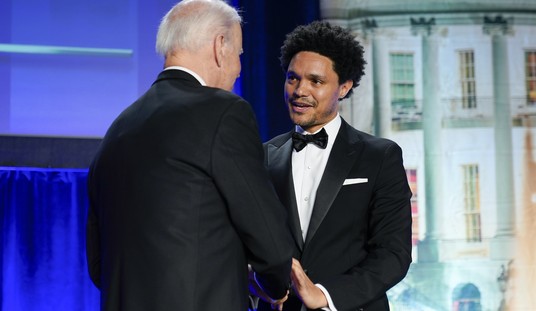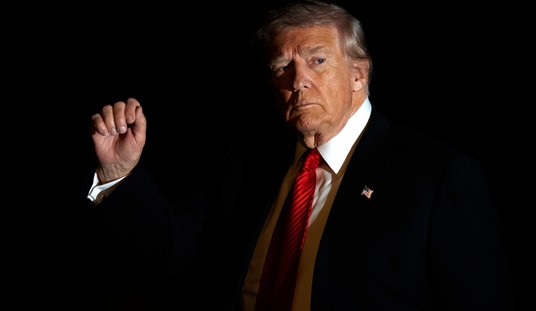=========
=========
Promoted from the diaries by streiff. Promotion does not imply endorsement.
=========
=========
In early June, it was announced that the Justice Department, which enforces antitrust laws, and the FTC were gearing up to investigate big tech giants like Google, Facebook, Twitter, and Amazon. That is the first step and one and most likely a long process. The last effort to look into Google took two years. However, it is a necessary step in the right direction.
The First Amendment does not restrain censorship on social media. Hence, the Left, through using bully tactics, has found a way to enforce their own opinions through the use of deplatforming. It works because social media giants like those noted above are near-monopolies. Does anyone care if you are silenced on MySpace? If you end the monopolies, you start to eliminate a tool of the Left.
For the bulk of American history, the media published things and the First Amendment protected them whether in print, on the radio, in movies, television, and even art shows. That covered nice things and not-so-nice things. But then, social media hit some saturation point in 2016 with the election of Donald Trump. There were a plethora of opinions for public consumption. Even traditional news jettisoned reporting “the news” and started reporting what others said online. Free speech had reached a climax- no filters, no barriers, and a global audience. The goal was to “go viral.”
After Trump’s election, things changed. Some who were tolerant of some form of censorship now came to demand censorship. First, they came for Russian outlets like RT and Sputnik and no one batted an eye. But then, it moved beyond the Russians. When Twitter dragged its feet in banning Alex Jones, a CNN reporter went through his history of tweets and found the smoking gun- a violation of their terms.
Following in short succession were people like Milo Yiannapolos, Richard Spencer and Ann Coulter. Except for a few supporters, they were alone in their fight. However, the Left came to realize that these people were just the tip of the white supremacist iceberg on social media. This “legion of hate,” they proclaimed, were out to stomp out all immigrants, people of color, all shades of LGBT and half the American population (women). In short, there was just too much free speech on social media and someone had to do something to save America from itself and not elect the wrong President ever again.
The Left realized that those who controlled social media and the Internet (namely Google) thought like them. They realized Twitter could silence an inalienable right. The sparse wording of the First Amendment was replaced with “terms of service” which meant whatever the Leftist mob wanted those terms to mean. The loathsome “heckler’s veto” was finalized as deplatforming.
Hence, there was nothing now to stop social media from deplatforming a person like Steven Crowder because he hurt the feelings of Carlos Maza. Maza led a campaign to demonetize Crowder on YouTube which was successful. YouTube followed up with a change to their terms of service and announced they would ban “…videos alleging a group is superior to justify discrimination, segregation or exclusion…” The classic documentary Triumph of the Will was one of the first casualties. Soon, historians found themselves banned from uploading archival material about Hitler. Today, YouTube proudly asserts that they have reduced the views of “supremacist” videos by 80%.
And then the infection spread. Gab, an alternative to Twitter, was threatened by Microsoft with the cancellation of their domain based on “offensive” posts by a minor GOP candidate. Facebook jumped on the pile by banning videos from Prager University. When journalist Tim Shorrock criticized the New York Times for covering up American support for South Korean dictatorships, he found himself on the wrong side of the mob.
Officials for Google stated: “Although people have long been racist, sexist, and hateful in many other ways, they weren’t empowered by the Internet to recklessly express their views with abandon.” Vice celebrated that “deplatforming works” and gleefully accepted the censorship of fellow journalists. But, it is not just journalists, pundits, and politicians. Just recently, parents in Virginia who questioned the school’s new transgender policy found themselves also deplatformed.
Efforts to extend the First Amendment to social media through the argument that they are the new digital public squares have been met with stiff resistance even though 70% of Americans use at least one social media site. Trying to classify social media as “publishers” has also met with no success since they insist they are platforms, not publishers. In essence, they say they are like phone companies that allow you to communicate with another but exercise no control over what you say.
Being a platform has its advantages. It allows social media to exercise no control over what they print, no need to create transparent rules for using the platform, and no appeals process once deplatformed. There is no legal recourse. Publishers, by contrast, can be taken to court and are responsible for the content they print of it is libelous or maliciously false. Their claim to be being a platform is based on Section 203 of the Communications Decency Act. However, that section was based on the understanding social media, which was in its infancy at the time, would remain neutral public forums. Now, they want the best of both worlds: the protections afforded by being a platform and the power to ideologically manipulate their content.
Breaking through the platform-publisher question will be a long battle in the courts involving third parties. Not only does it cross international boundaries, but applies to sew sites as well as Nazi forums. However, more immediate action is required given the importance of social media in today’s society.
Google owns 90% of the search engine market, 75% of mobile Internet browsing and, along with Facebook, 50% of online advertisement. YouTube dominates online video. Facebook is accountable for two-thirds of social media with Twitter owning virtually the remainder. Although monopolies in their own right, they often work in a collusive manner. If one, for example, bans Alex Jones, they all ban Alex Jones. Whoever is leftover and remain on social media are then threatened with boycotts by the mob. Eventually, even PayPal cut off Alex Jones.
With legal and legislative fixes to preserve free speech either ineffective or long term, if there is even any inertia in that direction, major antitrust enforcement efforts are the necessary clumsy fix. The “fix” may just be breaking these tech giants into smaller companies as was done in the early stages of mass electronic communication in the country. In this way, no single company would be large enough to stifle free speech. It would thwart something our Founders never envisioned: People demanding censorship of speech simply because they disagreed with or did not like the results of an election.
Not likely to solve all the problems as it would not be a comprehensive enough effort to expand free speech rights, it would nevertheless be a necessary temporary effort to hold back the waters of censorship until sanity returned.













Join the conversation as a VIP Member